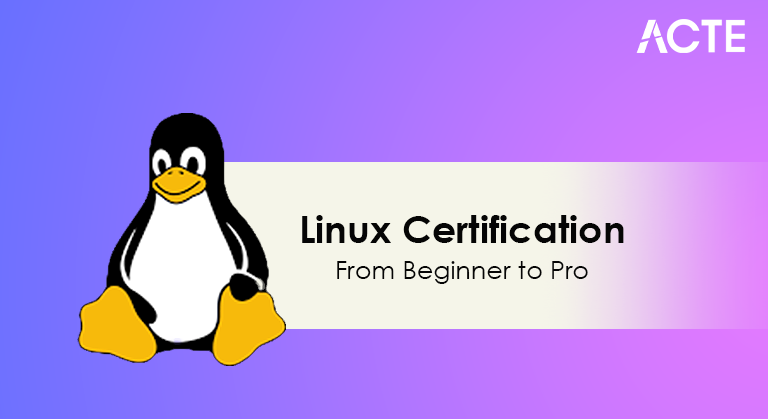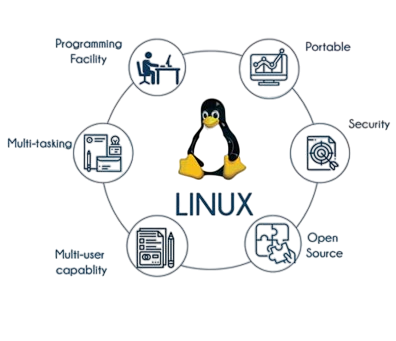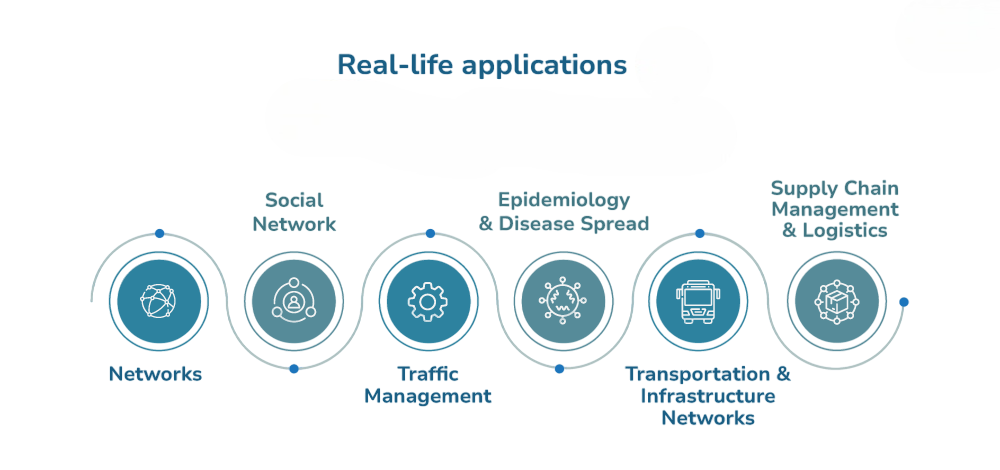
- Introduction to Linux and Its Industry Relevance
- Why Learn Linux in Today’s IT Landscape
- Overview of Popular Linux Certifications
- Skills and Topics Covered in Linux Certifications
- Eligibility and Prerequisites for Certification
- Benefits of Getting Certified in Linux
- Career Opportunities for Certified Linux Professionals
- Salary Expectations in India and Globally
- Real-World Applications
- Final Thoughts
Introduction to Linux and Its Industry Relevance
Linux is an open-source, Unix-like operating system that has been at the core of the technological revolution for decades. It powers a wide array of devices and systems from smartphones and laptops to cloud-based infrastructure and supercomputers. As businesses worldwide transition to open-source platforms for cost efficiency, security, and customization, Linux has become more relevant than ever. To manage these environments with speed and reliability, exploring DevOps Training reveals how automation, CI/CD pipelines, and infrastructure as code empower teams to streamline deployment, monitor systems, and scale operations efficiently. According to several industry surveys, over 90% of public cloud workloads run on Linux, making proficiency in Linux a critical skill for IT professionals. In enterprise environments, Linux dominates in server deployments and embedded systems. Organizations like NASA, Google, Facebook, and Amazon use Linux to power their systems.
To Earn Your DevOps Course Certification, Gain Insights From Leading DevOps Experts And Advance Your Career With ACTE’s DevOps Online Training Course Today!
Why Learn Linux in Today’s IT Landscape
In today’s fast-paced IT industry, employers demand professionals who can manage systems efficiently, ensure security, and reduce downtime. Learning Linux is not just a choice but a necessity for aspiring system administrators, DevOps engineers, cloud architects, and cybersecurity professionals. To complement this foundational skill with a modern systems language, exploring Go Programming Language reveals how Go’s simplicity, concurrency model, and performance make it ideal for building scalable infrastructure tools, cloud-native applications, and secure backend services. With the explosion of digital transformation and cloud-native applications, knowledge of Linux is essential.
Here are some compelling reasons to learn Linux today:
- Widespread Use: Linux is used extensively in cloud services, servers, and containers.
- Open-Source Advantage: Provides flexibility and customization without licensing fees.
- Security: Known for its strong security features and minimal vulnerabilities.
- Community Support: Backed by a strong global developer and user community.
- Career Edge: Certified Linux professionals often stand out in job markets.
Overview of Popular Linux Certifications
There are multiple certifications available that validate your Linux expertise. Here’s a breakdown: foundational certifications like LFCS and CompTIA Linux+ focus on system administration, while advanced options like RHCE and LPIC-3 target enterprise-level skills. To complement your Linux proficiency with Python mastery, exploring Python Scopes and Their Built-in Functions reveals how local, global, and nonlocal scopes interact with built-in tools like len(), type(), and range() essential for writing efficient, context-aware scripts in Linux environments.
- RHCSA (Red Hat Certified System Administrator): One of the most recognized certifications, RHCSA focuses on essential Linux administration skills such as managing filesystems, users, boot processes, and networking. It is often a prerequisite for advanced Red Hat certifications like RHCE.
- LFCS (Linux Foundation Certified System Administrator): Offered by the Linux Foundation, this vendor-neutral certification covers fundamental system administration, file management, user permissions, and network configurations.
- CompTIA Linux+: A widely recognized beginner-level certification covering Linux command-line usage, installation, scripting, permissions, and networking.
- LPIC-1 (Linux Professional Institute Certification Level 1): Part of a three-tier certification pathway, LPIC-1 validates your ability to perform maintenance tasks on the command line, install and configure a computer running Linux, and configure basic networking.
- Oracle Linux Certification: Suitable for those working with Oracle technologies, this certification validates proficiency in Oracle Linux environments, system administration, and cloud integration.
- Installation & Configuration: Installing Linux OS, setting up file systems, configuring partitions and swap spaces.
- User and Group Management: Creating, modifying, and deleting users and groups; setting permissions.
- File Management: Navigating the file system, using text editors (vim, nano), compressing/uncompressing files.
- Process Management: Managing background processes and daemons, monitoring performance using tools like top, ps, htop.
- Package Management: Installing, updating, and removing software using yum, apt, dpkg, and rpm.
- Networking: Configuring interfaces, assigning IP addresses, setting up routing, firewalls (iptables, firewalld), and DNS.
- Scripting and Automation: Writing shell scripts, using cron jobs for task automation.
- System Security: Applying security patches, setting up SELinux or AppArmor, configuring sudo access.
- Backup and Recovery: Creating backups with rsync, restoring data, disaster recovery planning.
- Professional Credibility: Employers trust certified candidates for mission-critical roles.
- Better Job Prospects: More companies prefer or require certifications.
- Higher Salaries: Certified professionals often command better compensation packages.
- Technical Confidence: Mastering Linux makes you a more effective system administrator or engineer.
- Global Recognition: Certifications like RHCSA and CompTIA Linux+ are valued across continents.
- Career Versatility: Opens up opportunities in cloud computing, DevOps, security, and networking.
- Entry-Level (0–2 years): ₹3.5 – ₹6 LPA
- Mid-Level (3–5 years): ₹7 – ₹12 LPA
- Senior-Level (5+ years): ₹15 – ₹25+ LPA (DevOps, SRE roles)
- USA: $75,000 – $130,000 per year
- UK: £40,000 – £80,000 annually
- Canada: CA$70,000 – CA$120,000
- Australia: AU$80,000 – AU$140,000
- Middle East (UAE, KSA): AED 120,000 – AED 250,000 annually
- Web Servers: Hosting platforms using Apache, Nginx on Linux
- Cloud Infrastructure: AWS EC2, Azure VMs, Google Compute instances run on Linux
- DevOps Pipelines: Jenkins, GitLab, Docker, Kubernetes rely on Linux
- Security Tools: Kali Linux, Snort, Wireshark, Metasploit for penetration testing
- IoT & Embedded Devices: Raspberry Pi, Arduino with Linux-based OS
- Big Data: Hadoop and Spark clusters configured on Linux servers
Would You Like to Know More About DevOps Course? Sign Up For Our DevOps Course Now!
Skills and Topics Covered in Linux Certifications
Linux certifications assess a broad spectrum of skills essential for real-world system administration roles. These include:
Eligibility and Prerequisites for Certification
Entry-level certifications like LFCS, CompTIA Linux+, and RHCSA are open to those without prior experience. However, having a basic understanding of operating systems and being familiar with the command line can greatly improve your readiness. If you aim for mid-level or advanced certifications, such as RHCE or LPIC-2/LPIC-3, you should have at least six months to a year of hands-on experience with Linux. To align this foundational knowledge with modern deployment practices, exploring DevOps Training reveals how tools like Docker, Jenkins, and Kubernetes integrate with Linux environments empowering professionals to automate workflows, manage infrastructure, and accelerate delivery pipelines. Additionally, you need basic programming or scripting skills, preferably in languages like Bash or Python. Understanding network concepts and virtualization technologies is also important. To prepare well for these certifications, consider taking online courses, boot camps, and hands-on lab sessions. These options provide useful practical experience and deepen your knowledge.
Gain Your Master’s Certification in DevOps by Enrolling in Our DevOps Master Program Training Course Now!
Benefits of Getting Certified in Linux
Obtaining a Linux certification demonstrates a commitment to your IT career and validates your skills. The key benefits include: improved job prospects, higher earning potential, and recognition across cloud, DevOps, and security domains. To enhance your scripting capabilities in these environments, exploring Python String Formatting reveals how techniques like f-strings, .format(), and % formatting help produce clean, readable output essential for logging, automation, and command-line tools in Linux workflows.

Preparing for DevOps Job Interviews? Have a Look at Our Blog on DevOps Interview Questions and Answers To Ace Your Interview!
Career Opportunities for Certified Linux Professionals
Linux plays a crucial role in many businesses and cloud environments. It creates various job opportunities for those with Linux skills. A Linux System Administrator installs, configures, and troubleshoots systems. DevOps Engineers use Linux to automate software deployment and manage infrastructure effectively. Site Reliability Engineers (SREs) combine software engineering skills with Linux system administration to improve system reliability. To streamline data exchange between services and maintain state across distributed systems, exploring Python Serialization reveals how techniques like pickle, json, and marshal enable efficient object conversion critical for building robust automation and monitoring pipelines. Cloud Infrastructure Engineers work with Linux when collaborating with major cloud providers like AWS, GCP, and Azure, where it powers virtual machines. Network Administrators set up Linux servers for vital services such as DHCP, DNS, and firewalls. Cybersecurity Analysts use Linux to implement security protocols, monitor system logs, and perform penetration tests.
Salary Expectations in India and Globally
Linux professionals tend to earn competitive salaries based on their experience and certifications. To expand their career options across enterprise environments and cross-platform development, exploring What is .Net FrameWork reveals how Microsoft’s robust development platform supports scalable applications, seamless integration, and language interoperability making it a valuable skillset alongside Linux expertise.
India:
Global Average Salaries:
Certifications often lead to higher salaries due to the specialized skillset and credibility they provide.
Are You Interested in Learning More About DevOps Course? Sign Up For Our DevOps Course Today!
Real-World Applications
Quality assurance plays a critical role in delivering reliable software and maintaining customer trust. It involves systematic activities that ensure products meet defined standards and perform as expected. To understand its scope, methodologies, and impact on development cycles, exploring What is Quality Assurance reveals how QA integrates testing, process improvement, and compliance to uphold software excellence across industries.

Knowing Linux helps you optimize performance, secure systems, and integrate various technologies seamlessly.
Final Thoughts
If you want to build a successful career in IT, getting a Linux certification is a smart choice. Whether you’re interested in system administration, DevOps, or cloud computing, Linux skills are always valuable. These certifications prove your knowledge and make your resume more appealing, helping you stand out in a competitive job market. By earning a Linux certification, you open doors to high-paying and stable job opportunities. To complement this expertise with automation and deployment skills, exploring DevOps Training reveals how mastering CI/CD pipelines, containerization, and cloud orchestration can elevate your career in modern infrastructure roles. You’ll gain practical skills for real-life IT situations, showing employers that you are committed to learning. If you’re ready to advance your career and enter the open-source world, pursuing a Linux certification is one of the best decisions you can make in today’s tech industry.





